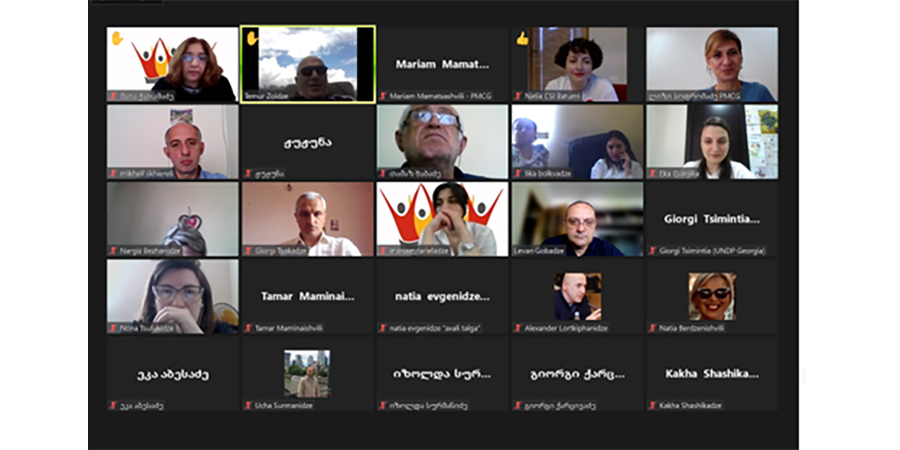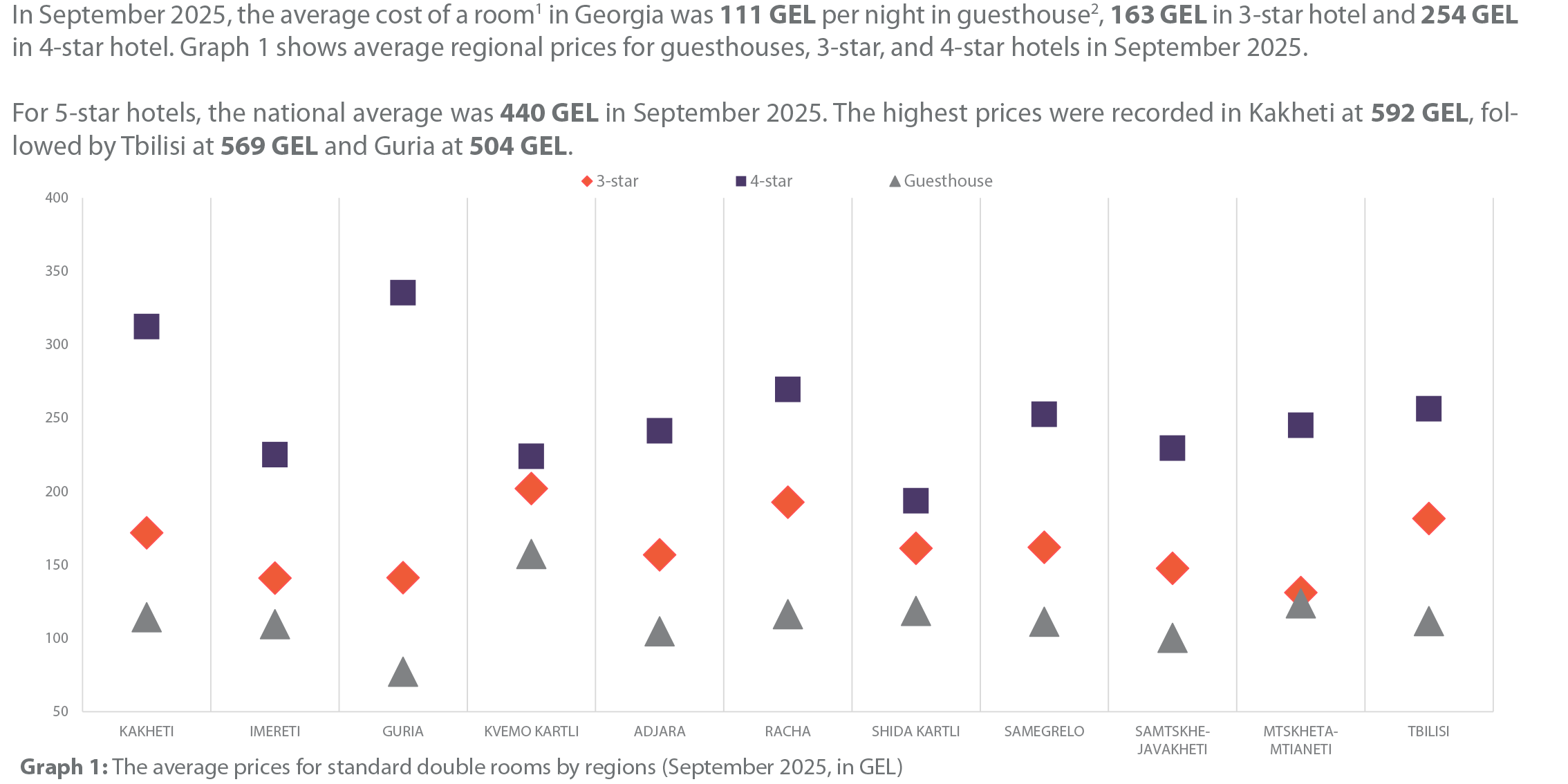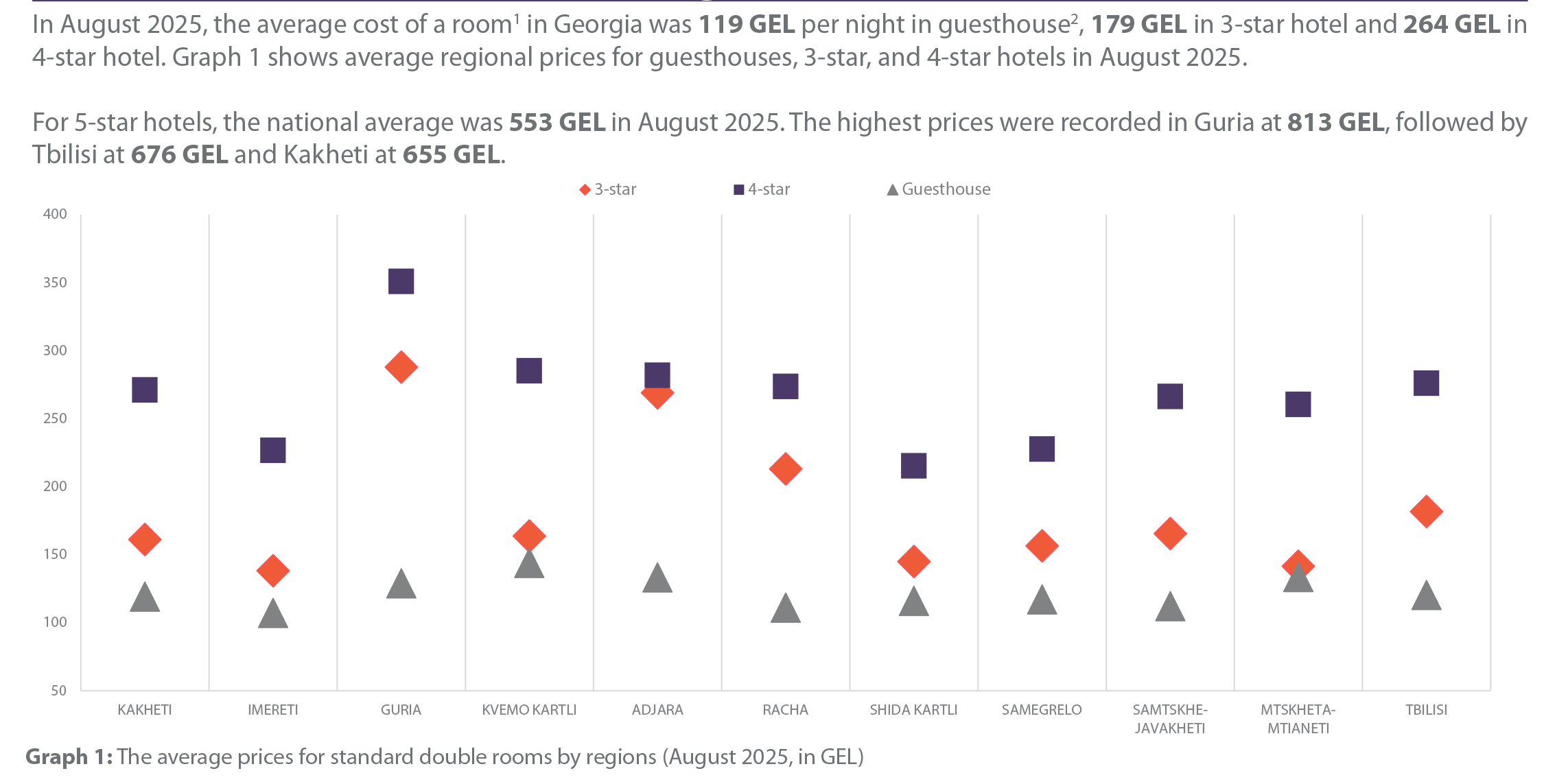Strengthening Urban Rural Linkages in the Autonomous Republic of Ajara

On June 14, we conducted a conference as part of the project entitled “Strengthening Urban Rural Linkages in the Autonomous Republic of Ajara” during which we presented the activities implemented and the rural-urban partnerships established in the course of the project.
Giorgi Tsimintia, Coordinator for Economic Diversification at UNDP, opened the conference and addressed participants of the event, noting that sharing the project experience with other regions of the country and abroad would be essential. Irma Abkhazava, Deputy Minister of Agriculture of the Autonomous Republic of Ajara, greeted participants of the event and highlighted the project’s importance.
The conference was attended by representatives of the public and private sector, employees of Batumi City Hall and Ajara municipality, as well as members of non-governmental organizations, local development groups, and civil society organizations (CSOs).
“I believe that it is very important to create urban-rural linkages in our region and thus strengthen coordination between different actors. I think that through these established connections, our organization will share the experience of cities with the mountainous parts of Ajara. This will ensure the promotion of education and innovative solutions across the target region, " said Maia Katamadze, Director of the Education Development and Employment Center.
As the level of urbanization has been increasing notably in Georgia across the past two decades, challenges have arisen in urban-rural cohesion. Urban households substantially outperform their rural counterparts in terms of ICT usage and access to quality education and social services. As foreseen in the 2030 Agenda for Sustainable Development, well-functioning urban-rural linkages are indispensable in the creation of decent work opportunities and conditions for all, increasing income, reducing rural poverty, and moving towards rural transformation. Promoting rural-urban linkages can serve as a key driver for sustainable and inclusive processes to structurally transform conditions in rural Georgia.
With this in mind, in the course of the project, we conducted research into urban-rural connections while also identifying a functional region and defining decision-making criteria and preferences for diverse stakeholder groups entering into urban-rural cooperation. We also promoted the establishment of urban-rural connections, and created and formalized 10 urban-rural partnerships via memoranda of understanding. Furthermore, for each such partnership, we developed visions, strategies, and action plans, in addition to creating a methodology for the creation of urban-rural linkages and mechanisms promoting urban-rural connections.
“The project was very valuable, as it has created a team uniting urban and rural representatives and established formal ties in the form of a memorandum. Formal connections have strengthened team coordination and synergy in the long run, which improves time management and planning, while making work more results-oriented. The formalization of urban-rural linkages has made us accountable to each other, and helped us to redistribute and share our responsibilities" said Lela Goguadze, Head of the Tourism Product Development Agency.
We implemented the project with the support of the European Union and the United Nations Development Programme (UNDP) under the European Neighborhood Programme for Agricultural and Rural Development (ENPARD). The aim of this initiative was to support sustainable urban-rural partnerships in the Autonomous Republic of Ajara and to identify functional linkages and integrated territorial development pursuant to enhanced economic, social, and environmental development.
Subscribe
NEWS

On September 9, we presented the findings of the research entitled “Investment and Export Promotion via Diagonal Cumulation between Georgia, Türkiye, and the European Union” at a forum organized by the Ministry of Economy and Sustainable Development of Georgia with the support of the USAID Economic Security Program, the EU, and GIZ.

We recently started working on a new project entitled “Communal Infrastructure for Environment and Tourism Improvement - Lot 2: Accompanying Measures,” aimed at improving the living conditions of people in four Georgian municipalities (Baghdati, Vani, Samtredia, and Kazbegi) through improving the supply of hygienically-sound drinking water and environmentally-safe sanitation infrastructure.

We recently completed a project entitled “Executive Roundtable (ERT) Session on Non-Profit Budgeting Process,” carried out by the USAID HICD Activity and implemented by the Kaizen, Tetra Tech company, aiming to facilitate collaboration, collective learning, and organizational development in the non-profit budgeting process with a cohort of selected organizations, including the Georgian Young Lawyers Association (GYLA), the Georgian Institute of Politics (GIP), and the Georgian Association of Social Workers (GASW).

On September 19-23, the International Consortium on Governmental Financial Management (ICGFM) is hosting the 2022 International Conference at the University Club of Washington DC, offering the first opportunity in over two years for the global PFM community to gather in-person to network and connect with leading professionals and colleagues from across the world, in a unique and distinguished setting.

On July 28, PMCG supported a workshop organized by the EU and the Ministry of Environmental Protection and Agriculture of Georgia as part of the project “Support to Environmental Protection and Fight Against Climate Change in Georgia.”
PUBLICATIONS

In November 2025, hotel price index in Georgia decreased by 5.9% month-over-month (MoM), with the largest declines in Guria, Tbilisi, and Samtskhe-Javakheti. In November 2025, hotel price index in Georgia decreased by 4.2% year-over-year (YoY), with the largest declines in Imereti, Kakheti, and Samegrelo-Zemo Svaneti. The average price of a room ranged from 101 GEL to 390 GEL in November 2025.

In October 2025, the number of persons receiving a salary increased by 1.9% month-over-month and by 2.6% year-over-year. In October 2025, vacancies published on Jobs.ge decreased month-over-month by 12.2% and by 2.1% year-over-year. The number of vacancies in IT and programming category increased the most both year-over-year (+54.8%) and month-over-month (+5.0%) in October 2025. In Q3 2025, compared to Q2 2025, labor market expanded, as seasonally adjusted job opening rate increased and unemployment rate decreased, while labor market efficiency remained unchanged.

In October 2025, hotel price index in Georgia decreased by 9.6% month-over-month (MoM), with the largest declines in Adjara,Guria, and Kakheti. In October 2025, hotel price index in Georgia decreased by 2.3% year-over-year(YoY), with the largest declines in Mtskheta-Mtianeti, Samegrelo-ZemoSvaneti, and Kakheti. The average price of a room ranged from 100 GEL to 442 GEL in October 2025.

In September 2025, the number of people receiving a monthly salary increasedby 4.9%month-over-month and by 2.6% year-over-year. The total number of vacancies published on Jobs.ge increased month-over-month (+20.0%) and year-over-year (+4.7%). Over the past three months, the number of vacancies on Jobs.gein logistics declined by 4.5%, while those in management fell by 4.4% compared to the same period in 2024.

The Business Association of Georgia (BAG) Index is a joint product of the Business Association of Georgia, PMC Research Center, and the ifo Institute for Economic Research. The BAG Index summarizes the BAG Business Climate, BAG Employment Barometer, and BAG Investment Environment, which are calculated according to the assessments of the top managers of BAG member businesses and companies in their corporate group. BAG and PMC Research Center publish the BAG Index on a quarterly basis from Q4 2019.

• In September 2025, hotel price index in Georgia decreased by 9.2% month-over-month (MoM), with the largest declines in Guria, Adjara and Samtskhe-Javakheti. • In September 2025, hotel price index in Georgia decreased by 1.8% year-over-year (YoY), with the largest declines in Adjara, Tbilisi and Kakheti. • The average price of a room ranged from 111 GEL to 440 GEL in September 2025.

In August 2025, the number of persons receiving a monthly salary declined by 5.7% month-over-month but rose by 2.6% year-over-year. In August 2025, the share of employees earning 2,400 GEL or more fell to 33.1%, while the share earning up to 600 GEL rose to 13.5%, month-over-month. Vacancies published on Jobs.ge decreased month-over-month by 11.0% and increased by 3.0% year-over-year.

In July 2025, the number of persons receiving a salary of 2,400 GEL or more exceeded the number of persons receiving a salary between 1,200 and 2,399 GEL. In July 2025, the highest growth in the number of vacancies on jobs.ge was recorded in IT and programming category, both month-over-month (+11.1%) and year-over-year (+26.8%). In Q2 of 2025, compared to Q1 2025, the efficiency of the labor market remained unchanged, as neither the job openings rate nor the unemployment rate showed a statistically significant change.

• In August 2025, hotel price index in Georgia increased by 3.5% month-over-month (MoM), with the highest growth recorded in Guria, Adjara and Racha. • In August 2025, hotel price index in Georgia increased by 1.1% year-over-year (YoY), with the highest growth recorded in Samtskhe-Javakheti, Shida Kartli and Racha. • Both MoM and YoY growth was mainly driven by rising guesthouse prices in August 2025• The average price of a room ranged from 119 GEL to 553 GEL in August 2025.

In June 2025, the number of persons receiving a monthly salary increased by 0.5% month-over-month (MoM) and by 3.4% year-over-year (YoY). In June 2025, the share of persons receiving a monthly salary of 2,400 GEL or more amounted to 32.8%, up 0.9 percentage points MoM and 6.6 percentage points YoY. In June 2025, the number of jobs published on Jobs.ge increased by 6.4% MoM but decreased by 1.0% YoY.